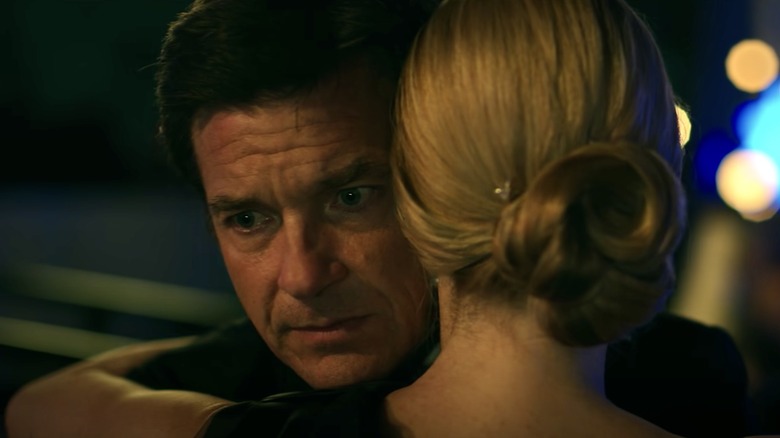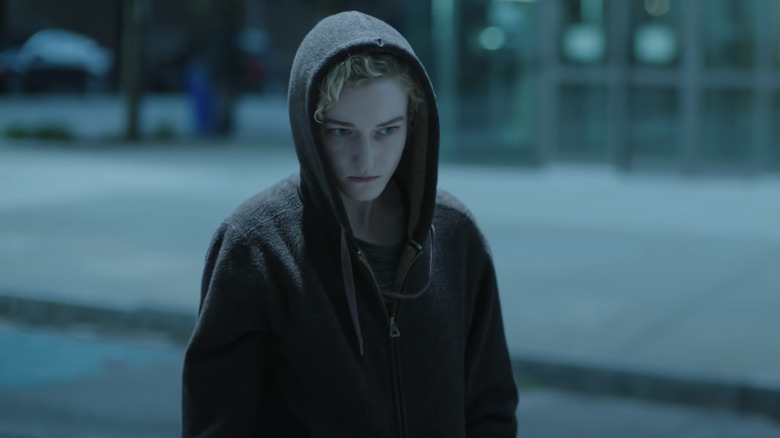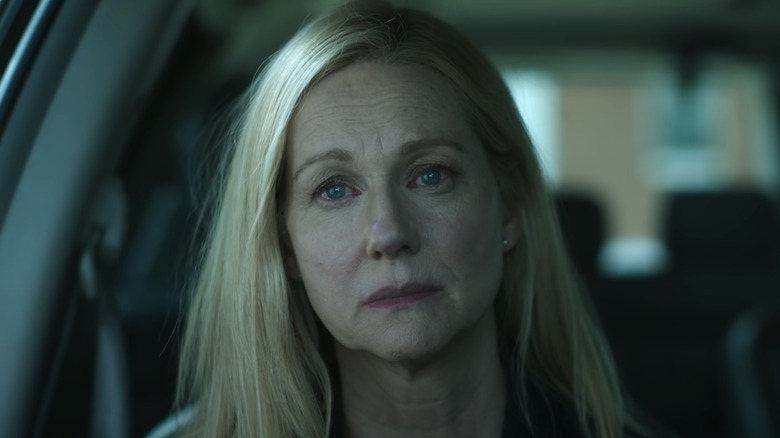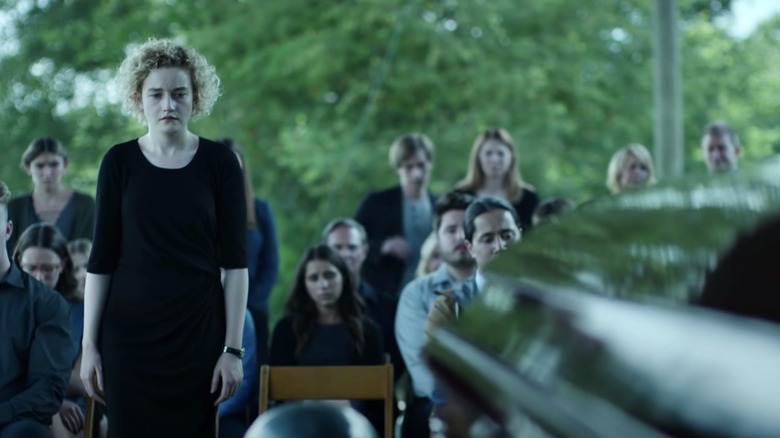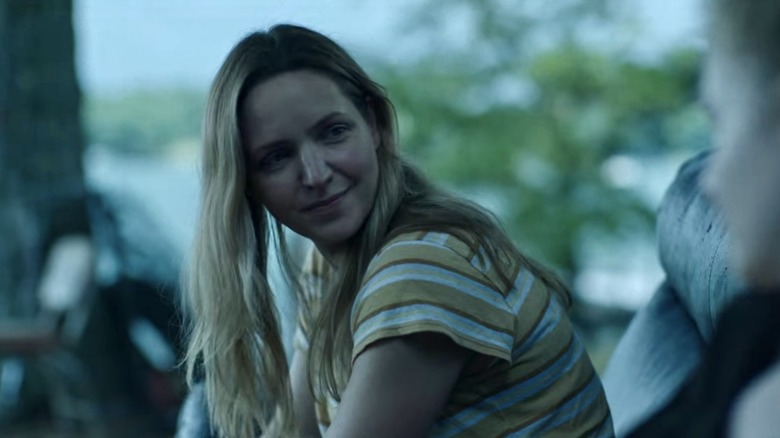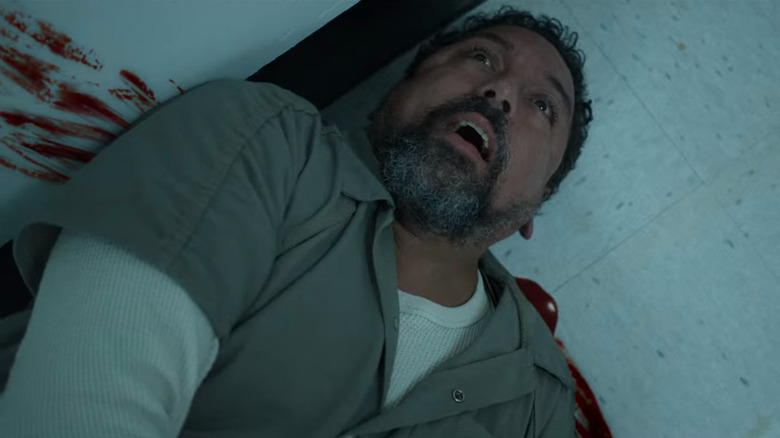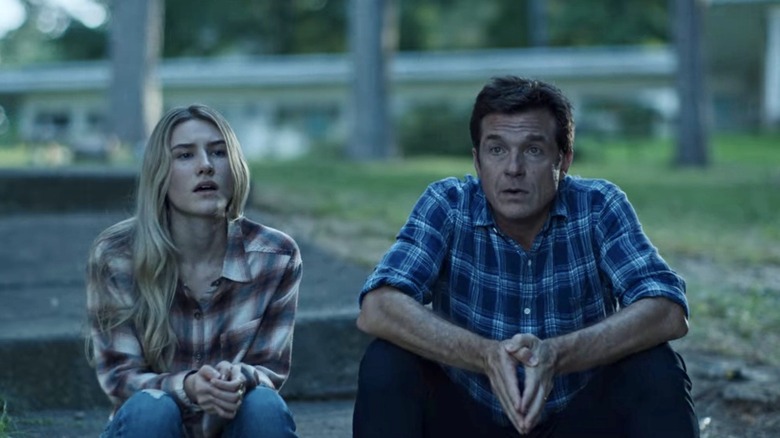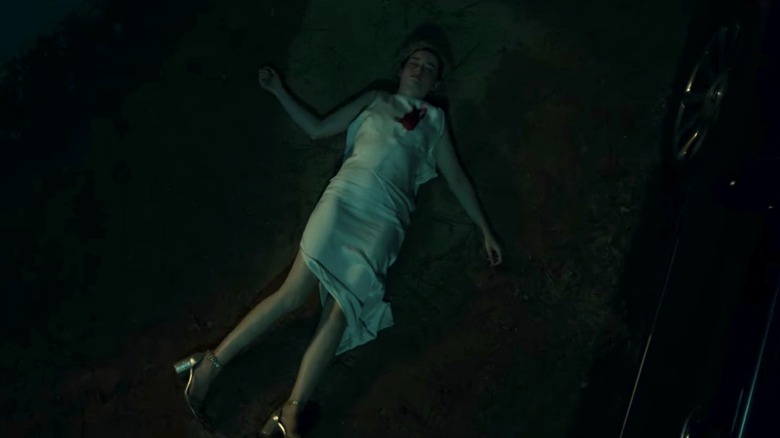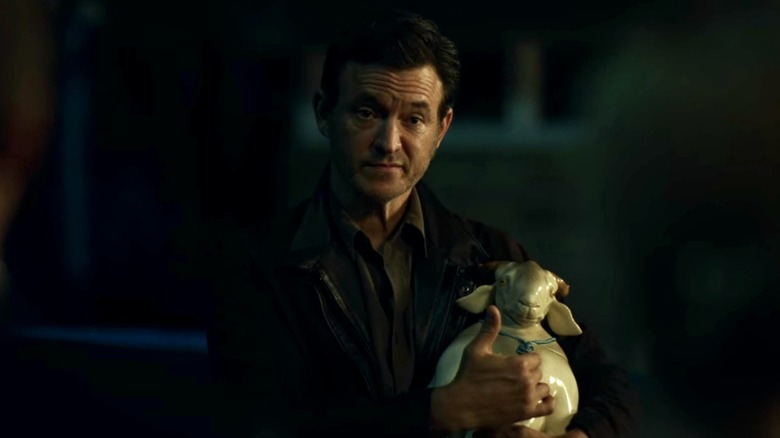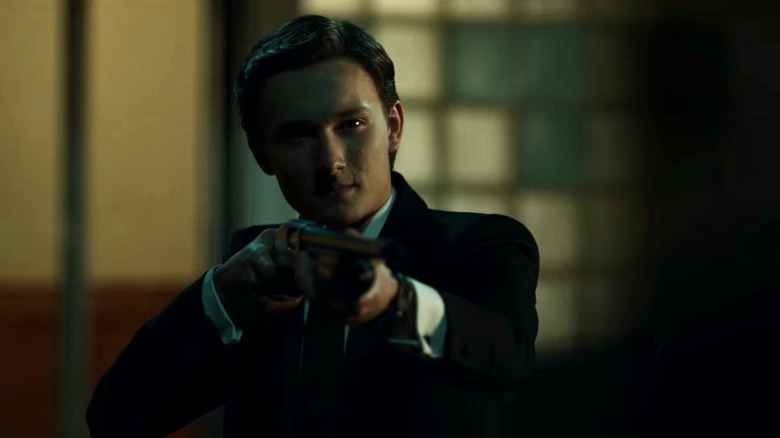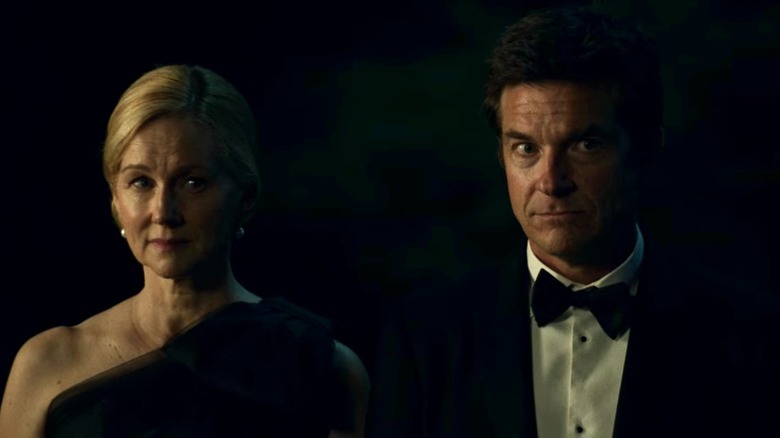Ozark Season 4: Part 2 Spoiler Review: The Byrdes Fly One Last Time Into The Heart Of The American Nightmare
After five nerve-wracking years, Netflix's "Ozark" has brought its narrative to a close with a seven-episode half-season that plays, for much of its running time, like any other full season. New threats arise, and the Byrdes — Marty and Wendy (Jason Bateman and Laura Linney) — conspire to outwit them and survive with their family intact while placating the FBI and continuing to launder money for a Mexican drug cartel.
"Ozark" Season 4: Part 2 keeps the revolving door of chaos swinging, but while it remains watchable and fully binge-worthy, it doesn't always feel like it's putting the pieces in place for a definitive conclusion to the show. There's a business-as-usual air to much of what transpires, as the Byrdes cycle through schemes and find themselves at cross-purposes with various power players. Even the smallest details start to ring familiar, such as Marty's Charlie Brown Blue wardrobe, which, in keeping with the show's color correction, seems to consist of the same blue checkered shirt with rolled-up sleeves that we've seen him wearing numerous times before.
By the end, however, "Ozark" Season 4: Part 2 manages to change things up and deliver a note of finality that makes a black-hearted yet impactful thematic statement. And with a body count as high as this show has racked up, it shouldn't be surprising to know there are character deaths ...
To talk about who lives and who dies and how exactly the show wraps up, we'll need to delve into spoilers, so consider this your last warning before we do a deep dive into those with a full post-mortem on "Ozark" Season 4: Part 2.
Vigilante Ruth in Chi-town
"Ozark" Season 4: Part 2 picks up right where Part 1 left off, with Ruth Langmore (Julia Garner) in the car and on the warpath after the death of her cousin Wyatt (series regular Charlie Tahan) at the hands of acting Navarro cartel chief, Javi Elizonndro (Alfonso Herrera). Wendy immediately vies to tell Javi that Ruth is out to get him, but Marty's not ready at this point to give Ruth up and let her be killed. That will change.
Luckily (or, in the long run, perhaps unluckily) for Ruth, she's got the Byrde kids, Charlotte and Jonah (Sofia Hublitz and Skylar Gaertner), in her corner. They tell Ruth about Javi's upcoming meeting with their parents and show her his photograph, so she'll be able to recognize him. From there, Ruth follows them to Chicago and becomes a vigilante in a hoodie, stalking Javi on the street and driving around while listening to Nas songs with lyrics like, "Life's a b***** and then you die."
She even encounters Run the Jewels rapper Killer Mike at an all-night diner. This isn't entirely random, since there's a precedent for musical cameos in "Ozark," with the Byrdes hiring REO Speedwagon to perform on their riverboat in season 3. But now we see Ruth taking revenge inspiration from the music, having fantasy sequences where she goes gangster and walks right up to Javi, then Marty and Wendy, gunning them down on the street.
Wyatt's death winds up feeling like something of a plot device to put Ruth on a collision course with Javi, but at least they don't drag it out. After a couple of fakeouts, Ruth finally catches up with Javi and enacts swift vengeance, thereby setting in motion her doomed story arc for the rest of the season.
Blood on the Byrde hands
Before he dies, Javi beats up his old professor in the men's room at a restaurant, seemingly for no other reason than to remind us what a bad guy he is and/or add a little action to the Part 2 premiere. Marty already knows Ruth is in town — having spotted her backing off her first assassination attempt on Javi from across the street — and when he gets on the phone with her, trying to life-coach her and tell her she's a good person, it comes across as an absurd bit of denialism on his part.
After three and a half seasons of murder and mayhem, there are very few characters left on "Ozark" who would qualify as "good" people. That said, Ruth is a much more sympathetic character than, say, Wendy, and she knows it. Before she pulls the trigger on Javi, Ruth calls Wendy "soulless, like a predator that doesn't even know why it's killing anymore." She also confronts Marty with the question, "You really think everything you do is to protect your family?"
Marty, at least, is still capable of feeling some normal pangs of conscience, though Wendy chalks it up to him finding "excuses to feel like s***." He says he's "tired of having blood on his hands" and asks Wendy how much will be enough for them to finally extract themselves from their criminal dealings, once and for all. Wendy is still clinging to her pie-in-the-sky idea of going legit with the charitable Byrde Foundation, which has already come to feel like a justification for any and all horrendous acts on her part.
When the Byrdes return to the Ozarks from Chicago, and daughter Charlotte asks how their trip went, Wendy's version of a domestic greeting is, "Ruth killed Javi." This is what passes for small talk now in their house.
Ghosts of the past
As the Byrdes deal with the fallout of Javi's death, it seems at first like "Ozark" Season 4: Part 2 is cutting off all modes of relief or avenues of escape for them. Marty turns to his old FBI handler, agent Maya Miller (Jessica Francis Dukes), who has been demoted, and says he's just another criminal to her now. And when Wendy goes to visit Omar Navarro (Felix Solis) in prison, he explodes in rage and threatens to kill her.
Meanwhile, Wendy's estranged father, Nathan (Richard Thomas, in less wholesome company here than on "The Waltons") shows back up, still looking for her "missing" brother, Ben (Tom Pelphrey). At the same time, Mel (Adam Rothenberg), the private investigator introduced in Part 1, is still on the trail of what happened to Helen Pierce (Janet McTeer, referenced as a character but not seen). Though of course, both Ben and Helen have been dead since season 3.
Mel soon links up with Maya, comparing notes with her and even romancing her a bit, while Nathan puts him on the case of Ben's disappearance. As it turns out, Mel and what he represents will have a crucial role to fill in the very last scene of "Ozark."
Wyatt and other dead characters return in flashbacks and hallucinations, which allows them to have a presence in this last batch of episodes despite being gone. Among other things, Ruth sees Wyatt digging his own grave.
We also see more of what went down with Wendy's bipolar brother, Ben (Tom Pelphrey), after she abandoned him in season 3, as the cartel enforcer Nelson (Nelson Bonilla) drives Ben to his death and we hear him utter his last words: "This is a dream." Ruth's father, Russ (Marc Menchaca, who worked with Bateman again in "The Outsider"), makes a guitar-playing cameo as well, as she gets her criminal record expunged and wins a controlling stake in the Missouri Belle casino through Wyatt's will.
Reuniting with old (and new?) faces
In addition to old ghosts, "Ozark" Season 4: Part 2 brings back some other familiar characters who were left alive in previous seasons but had exited the narrative. Rachel Garrison (Jordana Spiro), Marty's erstwhile business partner in the Blue Cat Lodge, has the most integral part to play as Ruth's new ally, but we also check in on businessman Charles Wilkes (Darren Goldstein) again through them.
This reunion aspect, the rounding up of long-absent faces, is one outward indication that "Ozark" is gearing up for a send-off, though again, Season 4: Part 2 feels more like it's ambling along than building to a steady denouement at times. This can be felt in the way the show continues to usher faces in and out of its cast, right up until the end.
In Season 4: Part 1, Javi killed Sheriff Nix (Robert C. Treveiler), which left Sheriff Guerrero (CC Castillo), to fill the seat in his office. It's possible there were simply behind-the-scenes reasons for writing Guerrero off the show, but she pops up at the beginning of Season 4: Part 2, and then, suddenly, there comes a scene where they tell us she's gone back to wherever she came from.
In steps Ronnie Wycoff (Brad Carter), the second new sheriff and third overall in "Ozark" Season 4. Carter fits right in and gels well with the rest of the cast, but it's one of those things where the viewer is left searching their memory (and perhaps scouring the credits or IMDb), trying to remember whether this actor and this character were on the show before. If not, why go to all the trouble of setting up Guerrero as sheriff and then abruptly switch out Wycoff for her?
This is just one example of how the final half-season of "Ozark" occasionally feels unwieldy — like it's following its own random logic with an ever-expanding roster that can only partially mask a repetitive narrative — or at the very least, a cyclical one.
Baptisms and waterboarding
It's understandable that "Ozark" might have an affinity for a long-running character like Sam Dermody (Kevin L. Johnson), who has now undergone a kiddie coaster arc from being a real estate agent to a strip club manager and gambling addict, to a born-again Christian baptized in a swimming pool. But Sam's subplot feels superfluous this season and his possible love connection with Nathan's devout significant other (Jane McNeill) only registers as a dose of comic relief and a sentimental detour with a tertiary character.
There's nothing wrong with that in principle, but it's another example of how Season 4: Part 2 seems so focused on maintaining the same "Ozark" juggling act that a few balls enter or exit the rotation without time for anyone to debate their essentiality or lack thereof.
Unlike Sam, Wendy doesn't think she needs to be saved by anyone other than herself (which may well be the subtextual point of all that baptism business). She has heart-to-hearts with Navarro's priest (Bruno Bichir), but this presumes Wendy even still has a heart. Marty realizes she risked their family's life by maneuvering Navarro out of solitary confinement after he already threatened her, and he's not sure loving someone like her unconditionally is the smartest thing to do.
Marty soon has to head down to Mexico to act as Navarro's liaison and reassert his power over the cartel, partly by claiming credit for Javi's death. When Navarro gets shivved (and strangles his attacker like Anton Chigurh on the prison floor), it seems pretty obvious from the get-go that Javi's mother and Navarro's sister, Camila Elizonndro (Veronica Falcón) should be the prime suspect. However, Marty is slow to catch on and winds up overseeing the torture, waterboarding, and killing of another cartel member in the same hole where Navarro once held him. He realizes, too late, that he had an innocent man killed, and Wendy manifests her own ongoing streak of deep denialism, saying, "No, you didn't. Navarro killed that man."
The game is rigged
As "Ozark" Season 4: Part 2 progresses, Marty opens up to Charlotte, telling his daughter that he can do no right in Wendy's eyes and that his relationship with her is "rigged," like another one of his childhood arcade games. The stress begins to unravel him, and before long, he and Wendy (whose own behavior grows increasingly erratic) are throwing down in a ridiculous road-rage fight with another driver.
Things come to a head between Wendy and Nathan when he finds out that Ben is, in all likelihood, dead. Nathan maneuvers to get custody of her kids, and she gets down on her knees in desperation and begs him not to take them from her. The overall dramatic stakes of this scene are somewhat undermined by that flash-forward in the van at the beginning of Season 4: Part 1, since we know that the whole Byrde family will be back together for that scene. Yet it's purposeful in terms of Wendy's character arc, since it prompts her to take drastic measures and check herself into a mental health clinic to keep from killing her father.
Rachel denounces Wendy, further distancing us from Wendy, much like Ruth did, by saying, "I think you are a ruthless, nasty b****. I think you have no sense of humor or human f****** decency." Rachel also finds herself in the position of having to snipe Nelson from the roof of Ruth's trailer in the rain, which leads to another instance where a character's exit from "Ozark" is treated quite oddly since we hear Nelson's name but never really get a shot to confirm his face.
When "Ozark" returns to the scene of that van crash from Part 1, it turns out to be a temporary setback for the Byrdes. As usual, they walk away largely unscathed. Navarro's priest asks Wendy, "How many times does God have to point at you before you take notice? He warns her, "I believe that accident was your last warning," but Wendy reads it as "an assurance that [they're] going to make it out alive."
The perils of Team Byrde
One of the few criticisms that I remember hearing about "Breaking Bad" after the otherwise acclaimed series ended was that it was a bit too "Team Walter White" for its own good. It wanted to have its cake and eat it, too: rendering Bryan Cranston's protagonist as despicable but still letting him best all his foes and win before losing his life. You could say the same thing about "Ozark," maybe: that it was too Team Byrde.
Superficially, "Ozark" would seem to come down on the side of its protagonists even more, since it lets the Byrdes live and kills off Ruth (their down-home version of Walt's partner, Jessie Pinkman, on "Breaking Bad.") In the end, though, I don't think we are supposed to like the Byrdes anymore or side with them at all. That's not the point.
"Ozark" could have shown that crime doesn't pay. It could have stripped the Byrdes of their power and social rank, leaving them in a spot similar to Vic Mackey (Michael Chiklis) at the end of "The Shield." However, that's obviously not the story that showrunner Chris Mundy and the writers' room wanted to tell.
Instead, "Ozark" ends with a literal bang, albeit an offscreen one, as the Byrdes pull off yet another perverse triumph. When Mel shows back up with Ben's ashes, he's there to confront Marty and Wendy with the sins of their past, all the people they've trampled on their way to success and false legitimacy. Mel is a likable character who nonetheless seemed to have given in to his dark side and accepted his old police job back as a bribe from the Byrdes. By his own admission, they gave him everything he'd been dreaming about for years, but he couldn't live with himself afterward.
What's inside the cookie jar
Unlike the Byrdes, Mel still has a moral compass. It's significant that Ben's ashes, the DNA remains that could be used as evidence against Marty and Wendy, are kept in a cookie jar, as if to literalize the idea of someone getting caught stealing with their "hand in the cookie jar." This particular jar/urn also happens to look like the Sabbatic goat, a Satanic emblem, as if to remind us of all the deals with the devil our resident antiheroes have made.
The Byrdes immediately offer to pay Mel off again, telling him he can name his price. Now, they are the devils. Wendy insists that any money they give Mel will cease being dirty because "money doesn't know where it came from." Mel says:
"You don't get to win. You don't get to be the Kochs or the Kennedys or whatever f****** royalty you think you people are. The world doesn't work like that."
To which Wendy replies, "Since when?"
That is the point of "Ozark." The show's dark message, if it could be said to have one, is that — whatever one might think about the long arc of the universe bending toward justice — the short arc of it still regularly enables bad people like the Byrdes to get off scot-free without having to face much in the way of lasting repercussions for their actions.
Time and again, we've seen the noose tighten around Marty and Wendy's necks, only for them to slip out of it somehow. Everything they have is stolen at the expense of human misery and other people's lives. Wendy says she wanted to build something, but whatever she and Marty have built is erected on a foundation of lies and death.
Their final gala on the Missouri Belle exemplifies that. It may be a black-tie affair, full of fake glad-handing, and yes, their whole casino boat and charity may smell "like freshly minted money," as Jim Rattelsdorf (Damian Young) puts it, but when all is said and done, that money smell is rather sickening.
A shotgun critique of capitalism
Right up until the bitter end of "Ozark," we see how the Byrdes are willing to throw anyone and everyone under the bus, even sometimes relishing it. Wendy double-crosses Senator Schafer (Bruce Davison), and the finale cuts away from the gala to show both Ruth and Navarro losing their lives as a result of their involvement with the Byrdes.
The Byrdes were in bed with some bad folks, and maybe ruthless antagonists like Navarro had it coming when Marty and Wendy betrayed them. But there's something to be said for loyalty, too, and Ruth is the show's third main character, so the audience is loyal to her and it makes things personal when the Byrdes give her up to die at the hands of Camila, their latest in a long line of criminal partners and cartel bosses.
In truth, the Byrdes are only loyal to their own interests. They use people for utilitarian purposes and then casually discard them. Ultimately, "Ozark," the series, lands like a critique of late-stage capitalism and the dark side of the American dream, something we've seen explored on other recent shows like "The Mosquito Coast."
The Byrdes will have to live with the knowledge that they got Ruth and a whole lot of other people killed, but if the past four seasons are any indication, I don't anticipate them losing a lot of sleep over it. They won't be alone with the guilt, either, since they've brought their kids along for the ride.
When Jonah, the prodigal son, enters the final scene of "Ozark" with a shotgun, as we've seen him do at other times in the series, we know that despite his attempts to break away from his parents, Jonah is now one of them. The gunshot that goes off after the screen cuts to black seals the deal forever.
An unflinching portrait of America the Ugly
As a series, "Ozark" had its moments, enough to keep the viewer tuning in sporadically via weekend binges over the last half-decade. However, in the same way that Wendy recognizes how hard it is to love her, this is a show that can keep one liking it without necessarily loving it.
That's not intended as a back-handed compliment. It's just to say that "Ozark" is best enjoyed with a level of discernment. For me, the high point of the show was probably season 3, when Ben entered the narrative to complicate it — though I'm aware not everyone is a Ben fan, and some folks think his looming specter has made him the Poochie of "Ozark."
To each their own. I can only say that the more I thought about it, the more the ending of "Ozark" resonated with me and seemed true to the story the show has been telling: a story that sings like an off-key rendition of the old patriotic song, "America the Beautiful." If you backed me into a corner, I would have to admit that my own view of capitalism and the American dream has probably grown about as pessimistic as "Ozark" since the show debuted (in the first year of Trump's presidency, no less).
Some viewers may not want or need a show like "Ozark" to remind them of how easily capitalism can corrupt or awful the world can be as people compete in cutthroat ways and feed each other into the gristmill of their own ambitions. Not every piece of art has to be aspirational, though, and if the purpose of this series was to show our ailing society and fallen world as it is, not as we'd wish it to be, then for my money (capitalist pun intended), "Ozark" mostly succeeded in its grim blue vision.
